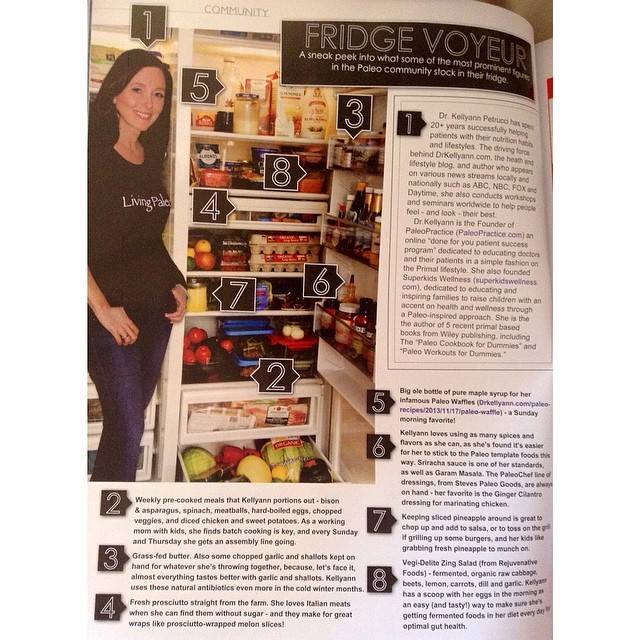
Paleo Modifications for Pregnancy
Paleo & Pregnant: The Two Go Hand-In-Hand
Many of my patients over the years have asked me ask me if it’s okay to follow a Paleo diet while pregnant. Is nutrient rich protein, vegetables, fruit, healthy fats and nuts and seeds good for you? Yes! BUT, you need to see what works best for you and your pregnancy.
The Paleo diet is great for those who are pregnant, as it features plenty of B12, iron and folate, and is filled with deep nutrition readily absorbable for Mom and baby. For some smart modifications, those who are pregnant should be sure to focus on the following:
Get Plenty of Omega-3 Fatty Acids: Fatty acids support fetal brain and eye development and may also prevent postpartum depression. Great Paleo foods that are high in omega-3 fatty acids include fish, nuts and avocados. If you’re nervous about mercury content of fish, stick with safe fish like salmon, herring and sardines.
Get Plenty of Iron with Animal Proteins: Animal products aren’t only high in iron, but they also contain heme iron, which is the most easily assimilated form available, so be sure and eat high-quality meat products — the fattier the better.
Paleo Bonus: Just by eating Paleo, you are getting more iron naturally. The Paleo diet restricts the intake of iron-inhibiting foods, such as processed dairy and grain products. Grain products are high in phytates, which block the absorption of iron as well as other nutrients, like calcium and zinc.
Get Plenty of Protein, But NOT Too Much: Because of metabolic changes that occur in the liver during pregnancy, women who are pregnant cannot tolerate the higher protein levels that they normally could. Therefore fattier meats, higher fats in general and more carbs are required. Eating eggs with the yolks is a great choice because they are a great source of choline. This is significant because choline helps protect against neural tube defects. It plays an important role in brain development, helping to form cholinergic neurons and the connections between these neurons that are so crucial in the first few years of life.
Get Plenty of Veggies and Fruit: Pregnant women should increase their carbohydrate consumption to approximately 150 grams per day (this is only an average — it varies by size, body composition and energy expenditure). You may want to increase fruit consumption, and add some higher-glycemic tropical fruits (such as bananas, mangoes and oranges) to your diet, instead of the fallback berries and apples that so many people stick to. Increase vegetable servings by 50 to 100 percent. Include starchy vegetables like sweet potatoes, squash, pumpkin, carrots or jicama.
Consider Full-Fat Dairy, if Tolerated: During pregnancy, a woman’s calcium requirements are considerably higher, and as such, it might be prudent to add a calcium supplement and/or a small amount of organic, grass-fed dairy in order to meet these increased needs. Dairy is rich in saturated fat, which is a good source of the fat-soluble vitamins (A, D, K2 & E) and conjugated linoleic acid (CLA). Fermented dairy products — like yogurt and kefir — are also great sources of beneficial bacteria. This is important because a baby’s first exposure to bacteria is in his/her mother’s birth canal, and the mother’s gut health has a significant influence on the lifelong health of her baby.
Add Another Snack or Meal: You may find that you need another snack or meal during pregnancy. This is where personal play comes in. It’s whatever works best for you and your baby. Contrary to popular belief, you’re not really eating for two; it’s more like 1 ½. You only need to gain about 25 to 30 pounds during your pregnancy, so just focus on eating good food, and how much depends on how you feel.
Focus on Rich Sources of Fat: Women should focus on healthy sources like meat (including red meat), butter, eggs, olive oil, coconut oil, nuts, limited full-fat dairy, etc. Cod liver oil is one of the healthiest supplements while pregnant. It has more vitamin D per unit weight than any other food. Vitamin D is crucial to fertility and pregnancy, and studies show that up to 50 percent of women are deficient in it.
Add Liver from an Organic Source: Liver may not sound appealing, but it has “healthy baby” written all over it. It contains so much deep nutrition, that I could fill a full page on its benefits. Liver is an amazing protein, full of zinc, folate, and B12, all highly absorbable. When you tuck your fork into a plate of liver and onions, repeat this mantra: “healthy baby, healthy baby.”
So you see? Veggies, fruit, iron, healthy fats and tolerated full-fat dairy …. a good pregnancy plan equals a good Paleo plan!
Keep thinking big and living bold!
-Dr. Kellyann







